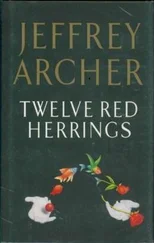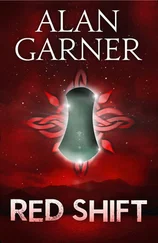Alan Bradley - A Red Herring Without Mustard - A Flavia de Luce Novel
Здесь есть возможность читать онлайн «Alan Bradley - A Red Herring Without Mustard - A Flavia de Luce Novel» весь текст электронной книги совершенно бесплатно (целиком полную версию без сокращений). В некоторых случаях можно слушать аудио, скачать через торрент в формате fb2 и присутствует краткое содержание. Жанр: Старинная литература, на русском языке. Описание произведения, (предисловие) а так же отзывы посетителей доступны на портале библиотеки ЛибКат.
- Название:A Red Herring Without Mustard: A Flavia de Luce Novel
- Автор:
- Жанр:
- Год:неизвестен
- ISBN:нет данных
- Рейтинг книги:4 / 5. Голосов: 1
-
Избранное:Добавить в избранное
- Отзывы:
-
Ваша оценка:
- 80
- 1
- 2
- 3
- 4
- 5
A Red Herring Without Mustard: A Flavia de Luce Novel: краткое содержание, описание и аннотация
Предлагаем к чтению аннотацию, описание, краткое содержание или предисловие (зависит от того, что написал сам автор книги «A Red Herring Without Mustard: A Flavia de Luce Novel»). Если вы не нашли необходимую информацию о книге — напишите в комментариях, мы постараемся отыскать её.
A Red Herring Without Mustard: A Flavia de Luce Novel — читать онлайн бесплатно полную книгу (весь текст) целиком
Ниже представлен текст книги, разбитый по страницам. Система сохранения места последней прочитанной страницы, позволяет с удобством читать онлайн бесплатно книгу «A Red Herring Without Mustard: A Flavia de Luce Novel», без необходимости каждый раз заново искать на чём Вы остановились. Поставьте закладку, и сможете в любой момент перейти на страницу, на которой закончили чтение.
Интервал:
Закладка:
He didn’t have much choice.
“Pleased to meet you, I’m sure,” he said, taking two of my fingers in his miniature fist and giving them a faint squeeze. “But we’re closed.”
“It’s my father, you see,” I went on breathlessly. “Today’s his birthday, and we wanted to—my sisters and I, that is—surprise him. He’s expressed a great interest in something you have in your shop, and we’d hoped to—I’m sorry I’m so late, Mr. Pettibone, but I was folding bandages at the St. John’s Ambulance …”
I allowed my lower lip to tremble very slightly.
“And what is this … er … object?”
“A table,” I blurted. It was the first thing that came to mind, and a jolly good thing I’d thought of it. There must be dozens of tables in a place like this, and I’d be able to have a good old snoop round while searching for the right one.
“Could you … er … describe it?”
“Yes,” I said. “Of course. It has four legs and—a top.”
I could see that he was unconvinced.
“It’s for stamps, you see. Father’s a philatelist, and he needs something he can spread his work on … under a lamp. His eyes are not quite what they used to be, and my sisters and I—”
He was edging me towards the door.
“Oh—just a minute. I think that’s it,” I said, pointing to a rather sorry bit of furniture that was huddled in the gloom beneath an ormolu clock with plump-bellied pewter horses. By moving to touch it, I was six or eight feet deeper into the shop.
“Oh, no, this one’s too dark. I thought it was mahogany. No—wait! It’s this one over here.”
I had plunged well towards the back of the shop and into the shadows. With Pettibone bearing down upon me like a wolf upon the fold, I realized that I was now cut off from the door and freedom.
“What are you playing at?” he said, making a sudden grab for my arm. I leapt out of his reach.
Suddenly the situation had turned dangerous. But why? Was there something in the shop Pettibone didn’t want me to see? Did he suspect that I was on to his shady antiques dealings?
Whatever the cause of his aggressiveness, I needed to act quickly.
To my right, standing about a foot out from the wall, was a massive wardrobe. I slid behind it.
For a while, at least, I was safe. He was too big to squeeze behind the thing. I might not be able to come out, but I’d have a moment to plan my next move.
But then Pettibone was back with a broom. He shoved the bristles into my ribs—and pushed. I stood my ground.
Now he turned the broom around and began prodding at me furiously with the handle, like a man who has trapped a rat behind the kitchen cupboard.
“Ouch!” I cried out. “Stop! Stop it! You’re hurting me!”
Actually, he wasn’t, but I couldn’t let him know that. I was able to slip far enough along the wall that I was beyond reach of his broom.
As he came round the wardrobe to have a try from the other side, I slithered back to the far end.
But I knew I was trapped. This game of cat and mouse could go on all day.
Now the wardrobe had begun to move, its china casters squealing. Pettibone had put his shoulder to a corner and was shifting the thing out from the wall.
“Oh!” I shrieked. “You’re crushing me!”
The wall of wood stopped moving and there was a brief pause in his attack, during which I could hear him breathing heavily.
“Reginald!”
The voice—a woman’s—cut through the shop like a falling icicle. I heard him mutter something.
“Reginald, come up here at once! Do you hear me?”
“Hello upstairs!” I shouted. “It’s Flavia de Luce.”
There was a silence, and then the voice said, “Come up, Flavia. Reginald, bring the girl here.”
It was as if she’d said “fetch.”
I slipped out from behind the wardrobe, rubbing my elbows, and shot him a reproachful look.
His eyes strayed to a narrow staircase at the side of the shop, and before he could change his mind, I moved towards it.
I could have made a break for the door, but I didn’t. This could be my only chance at scouting out the place. “In for a penny, in for a pound,” as Mrs. Mullet was fond of saying.
I put my foot on the first step and began my slow trudge upstairs to whatever fate awaited me.
The room at the top came as a complete surprise. Rather than the rabbit’s warren of little cubicles I had imagined, the place was unexpectedly large. Obviously, all of the interior walls had been knocked out to form a spacious attic which was the same size as the shop beneath.
And what a contrast with the shop it was! There was no clutter up here: In fact, with one exception, the room was almost empty.
In the middle of the floor stood a great square bed hung with white linen, and in it, propped up by a wall of pillows, was a woman whose features might well have been chiseled from a block of ice. There was a faint bluish—or cyanotic—tinge to her face and hands which suggested, at first glance, that she might be the victim of either carbon monoxide or silver poisoning, but as I stared, I began to see that her complexion was colored not by poison, but by artifice.
Her skin was the color of skim milk. Her lips, like those of her husband (I presumed that the parrot-man was her husband) were painted a startling red, and, as if she were a leftover star from the silent cinema, her hair hung down around her face in a mass of silver ringlets.
Only when I had taken in the details of the room and its occupant did I allow my attention to shift to the bed itself: an ebony four-poster with its posts carved into the shape of black angels, each of them frozen into position like a sentry in his box at Buckingham Palace.
Several mattresses must have been piled one atop the other to give the thing its height, and a set of wooden steps had been constructed at the bedside, like a ladder beside a haystack.
Slowly, the icy apparition in the bed lifted a lorgnette to her eyes and regarded me coolly through its lenses.
“Flavia de Luce, you say? One of Colonel de Luce’s daughters—from Buckshaw?”
I nodded.
“Your sister Ophelia has performed for us at the Women’s Institute. A remarkably gifted player.”
I should have known! This landlocked iceberg was a friend of Feely’s!
Under any other circumstances, I’d have said something rude and stalked out of the room, but I thought better of it. The investigation of murder, I was beginning to learn, can demand great personal sacrifice.
Actually, the woman’s words were true. Feely was a first-rate pianist, but there was no sense going on and on about it.
“Yes,” I said, “she’s quite talented.”
Until then I had been unaware that Reginald was close behind me, standing on the stairs just one or two steps from the top.
“You may go, Reginald,” the woman said, and I turned to watch him descend, in uncanny silence, to the shop below.
“Now then,” she said. “Speak.”
“I’m afraid I owe you and Mr. Pettibone an apology,” I said. “I told him a lie.”
“Which was?”
“That I’d come to buy a table for Father. What I really wanted was an opportunity to ask you about the Hobblers.”
“The Hobblers?” she said with an awkward laugh. “Whatever makes you think I’d know anything about the Hobblers? They haven’t existed since the days of powdered wigs.”
In spite of her denial, I could see that my question had caught her off guard. Perhaps I could take advantage of her surprise.
“I know that they were founded in the seventeenth century by Nicodemus Flitch, and that the Palings, at Buckshaw, have played an important role in their history, what with baptisms, and so forth.”
I paused to see how this would be received.
Читать дальшеИнтервал:
Закладка:
Похожие книги на «A Red Herring Without Mustard: A Flavia de Luce Novel»
Представляем Вашему вниманию похожие книги на «A Red Herring Without Mustard: A Flavia de Luce Novel» списком для выбора. Мы отобрали схожую по названию и смыслу литературу в надежде предоставить читателям больше вариантов отыскать новые, интересные, ещё непрочитанные произведения.
Обсуждение, отзывы о книге «A Red Herring Without Mustard: A Flavia de Luce Novel» и просто собственные мнения читателей. Оставьте ваши комментарии, напишите, что Вы думаете о произведении, его смысле или главных героях. Укажите что конкретно понравилось, а что нет, и почему Вы так считаете.












